UX Design & User Reseach
Skytsengel Reimagined: Enhancing Psychological Support for Stalking Victims
Background
Stalking has always been a persistent societal issue with a significant impact on those affected—disrupting daily life, social interactions, and mental well-being. The Danish Stalking Center (hereafter referred to as DSC) is a resource center focused on intervention and knowledge dissemination to improve conditions for stalking victims. According to DSC, the center works at political and legal levels to raise awareness of the issue, generate and share knowledge about stalking. They also provide support, counseling, and treatment for victims, their relatives, and professionals. Additionally, the center offers assistance to individuals who engage in stalking.
One of the resources DSC provides is an app called Skytsengel, designed as a tool for stalking victims. Our case, assigned by DSC, outlined their desire to further enhance the app’s ability to support stalking victims while also expanding its features to include more general counseling and guidance. DSC also emphasized that the app’s logging tool is a crucial resource, as documenting incidents is essential for victims to build a case and seek legal protection.
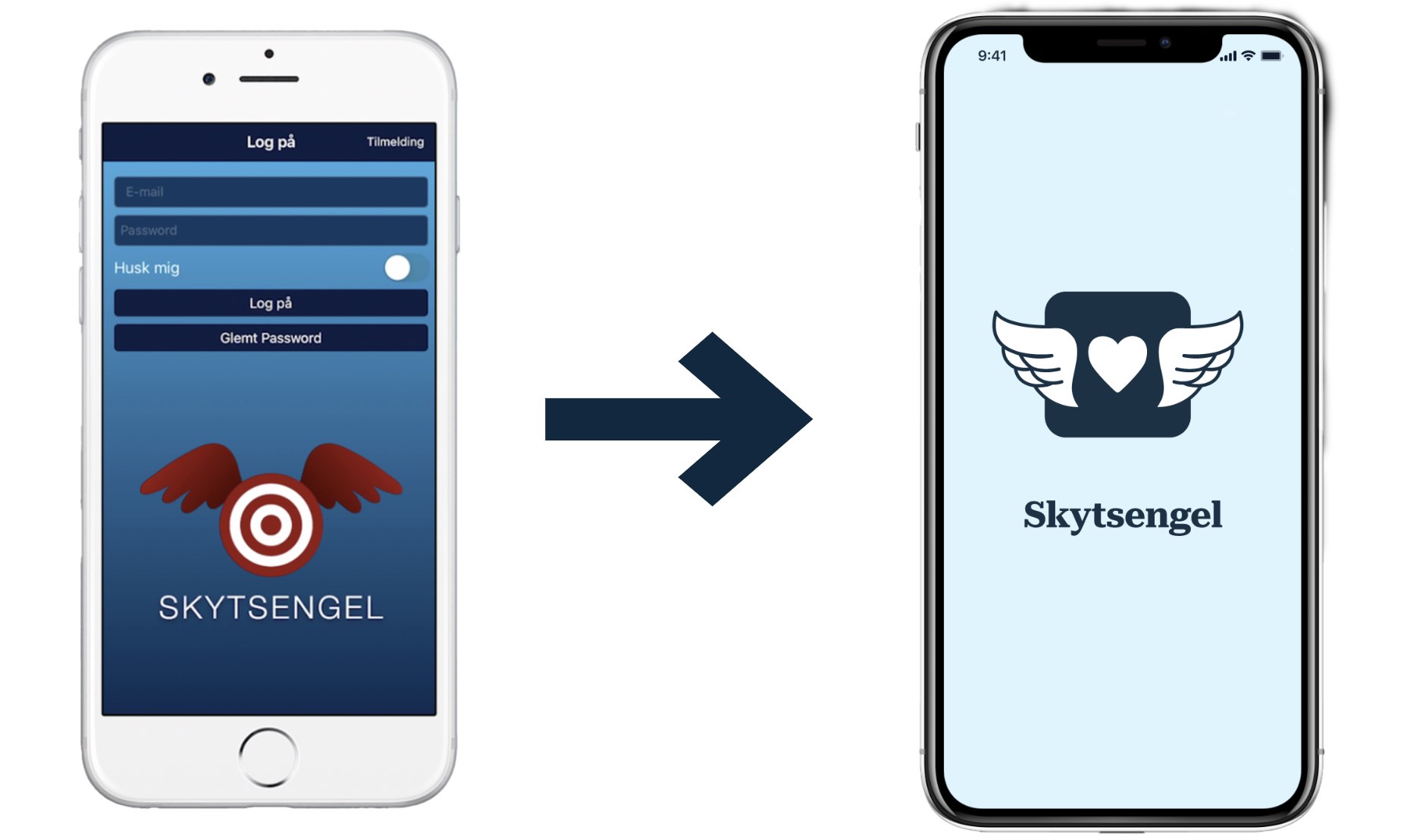
Key Findings
Our research revealed that DSC is the only organization in Denmark solely dedicated to stalking, serving as the primary referral point for victims in need of help and counseling. A preliminary critique of the Skytsengel app highlighted its limitations, forming the foundation for our case, as DSC expressed a desire to further develop the app to better support stalking victims.
Through our information meeting and further desk research, we identified these key findings:
- Stalking consists of systematic incidents rather than one-time occurrences.
- Every stalking case is unique and not confined to a specific location or individual.
- Many victims choose not to report incidents, especially when the perpetrator is someone close to them.
- Skytsengel is designed exclusively for victims, with no functionalities for perpetrators.
- The emergency buttons may create a false sense of security.
- The app’s design and layout feel intimidating and unwelcoming, failing to consider the vulnerable state of victims and how overwhelming stalking and its documentation can be.
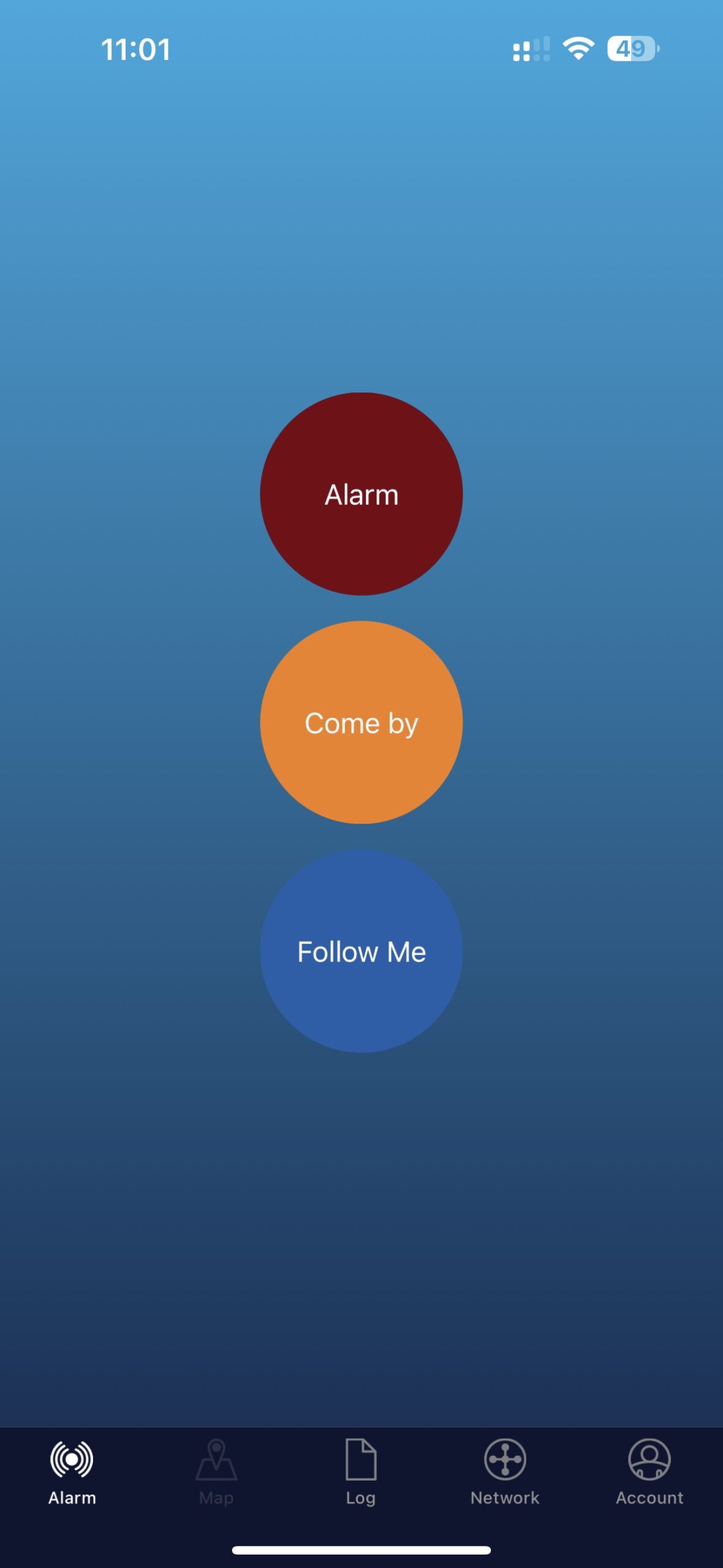
Skytsengel’s original alarm screen
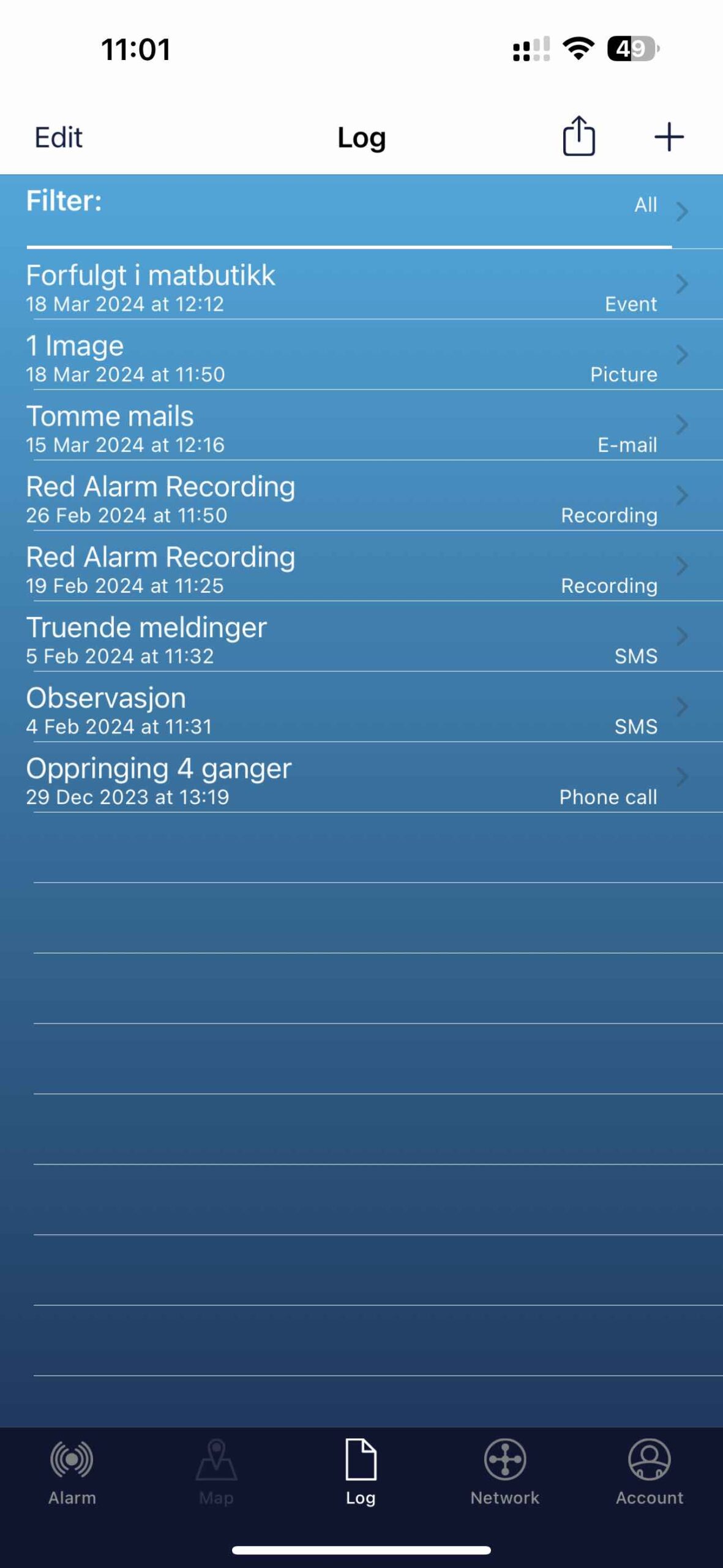
Skytsengel’s original log screen
Design concept
The original Skytsengel required users to register as either a victim or a helper. Helpers would receive notifications about the victim’s alarms and whereabouts, but this meant that for victims without a support network, the app’s alarm functions became useless. Our design concept was developed based on this problem statement:
How can Skytsengel ensure that stalking victims without a support network feel safe and cared for while also providing guidance and information?
To address this, we aimed to make the app more versatile and useful for a broader user group, including victims, other relatives and even individuals exhibiting stalking behaviors.
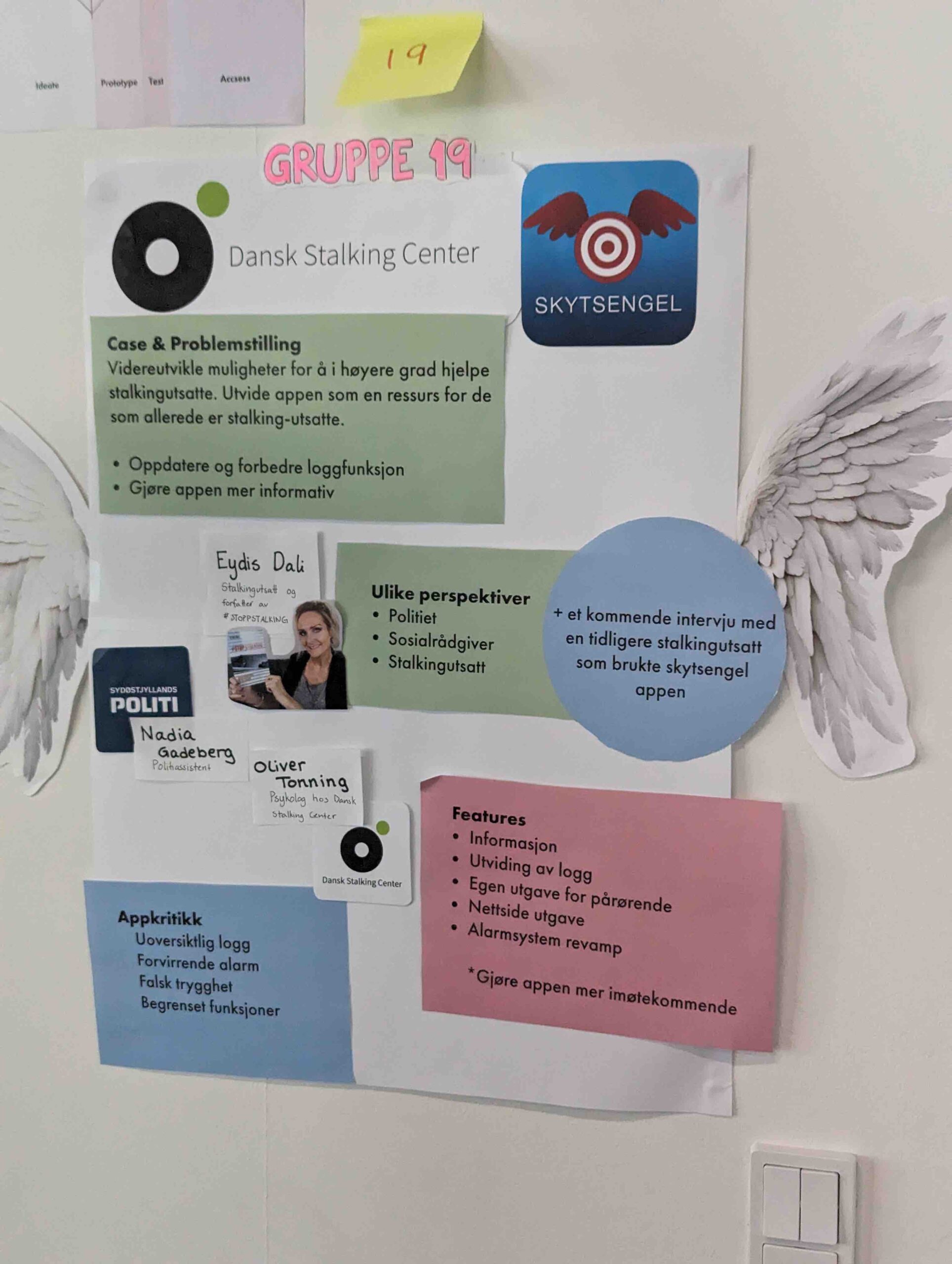
Redesigning Skytsengel
The final design of Skytsengel was developed based on these three key conflicts:
- Many stalking victims feel isolated for various reasons.
- Lack of knowledge about stalking.
- Skytsengel can feel intimidating and may create a false sense of security.
Our redesigned Skytsengel aims to support users psychologically while respecting the sensitive nature of their situation. The new features specifically cater to individuals without a personal support network, addressing a key limitation of the original app. This final prototype serves as a Minimum Viable Product, meant to visualize our findings rather than act as a finished solution.
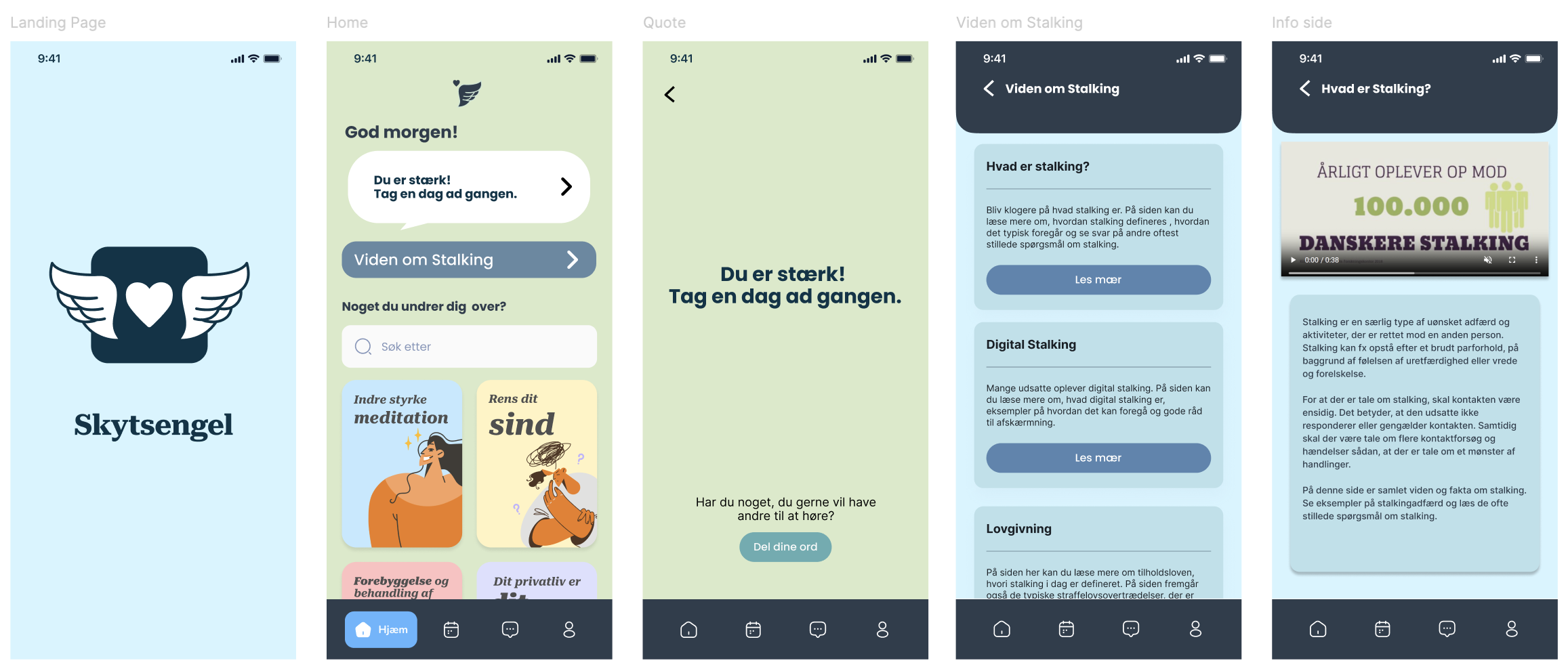
To create a more supportive and encouraging platform, we redesigned the app logo and introduced motivational daily quotes, mindfulness exercises, and courses on the homepage. Users can also share motivational messages with others, ensuring that even those without a network feel a sense of support.
A “Knowledge on Stalking” section provides practical information, aiming to increase awareness and equip users with tools to better understand and handle their situation.
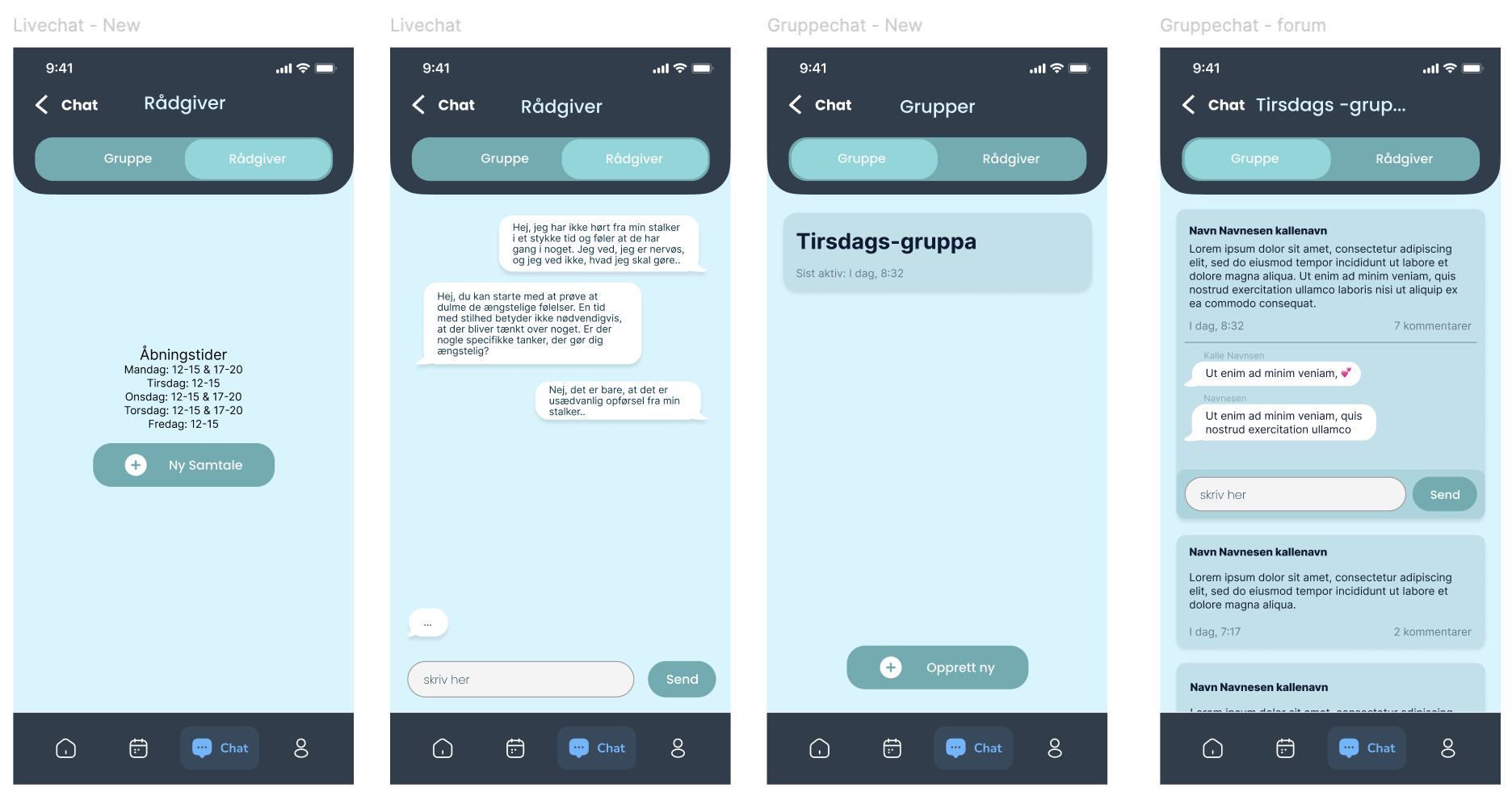
To combat feelings of isolation, we added a chat function where users can connect with their DSC support group or communicate directly with an advisor, making the app itself part of their support system.
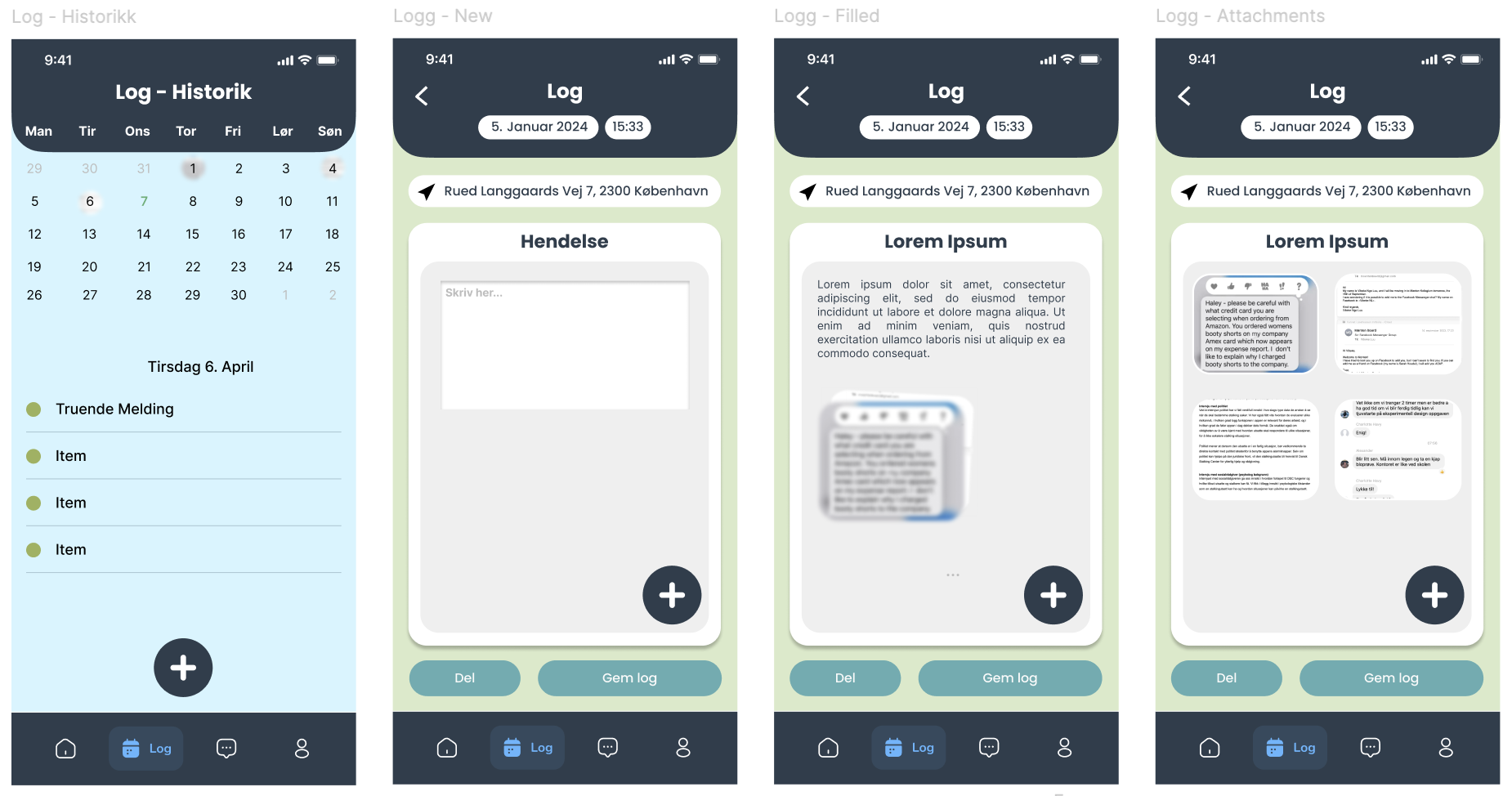
The logging feature remains central, with improvements for easier documentation. Users can now visualize incidents in a calendar view, add past events, and attach files, images, videos, and audio clips for more comprehensive documentation.
This project was done in collaboration with Emma Tandle, Vibeke Ngo Luu, Andreas Henriksen and Alexander Anderson
